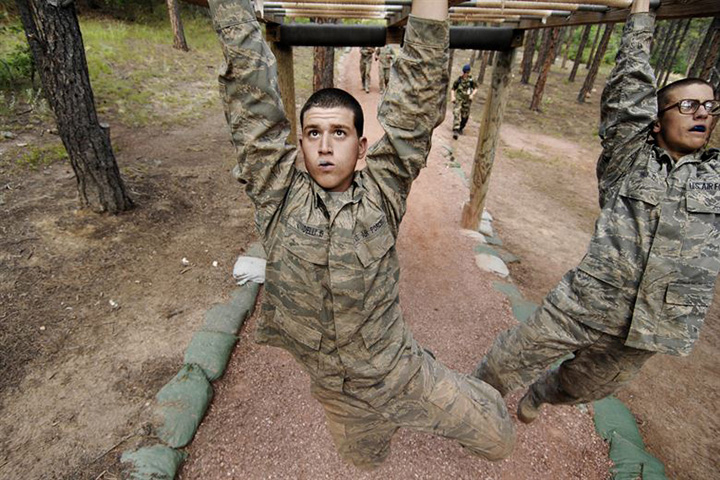The U.S. Air Force Academy’s Lt. Col. Rob Marshall is leading a new way of forming character in young cadets that’s pushing them out of their comfort zones and forcing them to apply what they learn in the outdoors.


The U.S. Air Force Academy’s Lt. Col. Rob Marshall is leading a new way of forming character in young cadets that’s pushing them out of their comfort zones and forcing them to apply what they learn in the outdoors.
“There’s not a single cadet here who isn’t highly intelligent, but how far have they been tested?” Marshall questioned. “Learning with unpredictability is essential and that’s what Mother Nature provides.”
Marshall graduated from the Academy in 2001, and he’s since climbed to the summit of the tallest peak in every continent as a primary lead for the Air Force Seven Summits team. He’s also a CV-22 Osprey pilot who has transported special operations soldiers in and out of war zones, according to an Air Force feature.
Marshall now works as the director of experiential education for the Academy’s Center for Character and Leadership Development, where he’s devised a new 10-day program for the cadets’ Expeditionary Survival Training. The program, slated to start this summer with 1,200 sophomore cadets, is designed to encourage them to push through their personal limits to innovate in a real world setting—a process that shapes character.
“In the classroom, we mainly learn through reading, discussion, watching and listening,” Marshall said. “Experiential learning involves applying the concepts learned in the classroom—often outdoors—experimenting with them and sometimes failing.”
The new training will involve a 12-hour hike, followed by a 24-hour hike, and will culminate with a 36-hour adventure race through the wilderness near the Academy’s campus, north of Colorado Springs, Colorado.
“At the end of each experience, cadets will debrief and reflect upon what they learned,” Marshall said. “This way the experience is personalized and they can then try it again and again, each time learning something new and hopefully improving their results.”
Col. Mark Anarumo, head of the Center for Character and Leadership Development, said the goal is to document the success of the new approach to forming character in cadets, in hopes the Air Force will implement the same style of learning in other areas. “We will push them to their personal limits through these programs and test them in ways they would otherwise never experience short of leading in a combat environment,” he said.
James Davison Hunter and Ryan S. Olson, with the Institute for Advanced Studies in Culture at the University of Virginia, note in The Content of their Character:
There is a fundamental principle about the formation of identity: Who we are is, in part, a function of who we are not. As individuals and groups, we define ourselves against something else.
The new program at the Air Force Academy defines itself against the status quo of teaching to a test in a controlled environment, and the plan to expand the approach is a testament to a broader shift in character formation.
“I believe the number one skill that we have to fight our enemies is innovation and the outdoors requires innovation in abundance as the rules and environment are always changing,” Marshall said. “I want our cadets to realize that when you walk off the beaten path you’re no longer following the status quo and that’s okay, because often the status quo is our enemy.”
Outward Bound, a program for students ages 14–17, takes a similar approach with expeditions that “push students physically, socially and emotionally.”
“Often when they think they’ve reached their limits, they find there is more within them,” according to the nonprofit’s website.